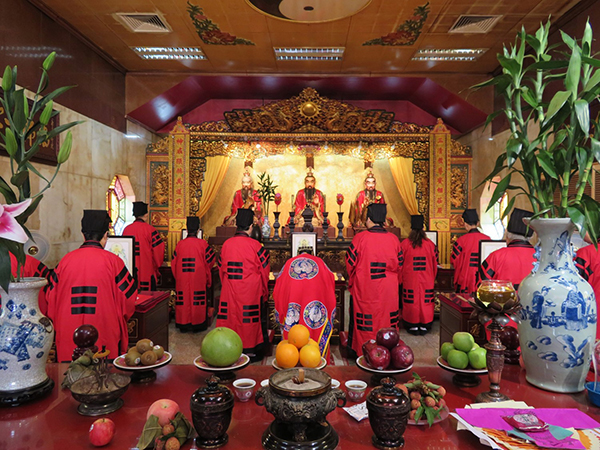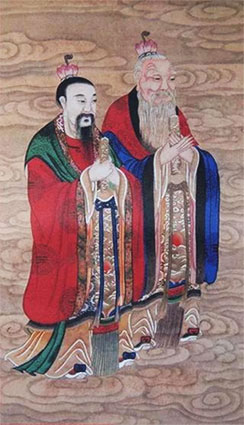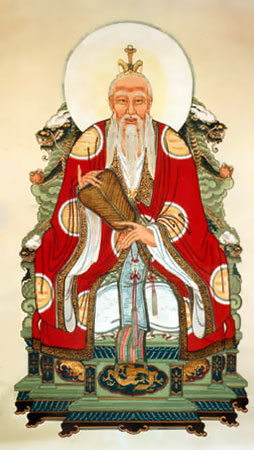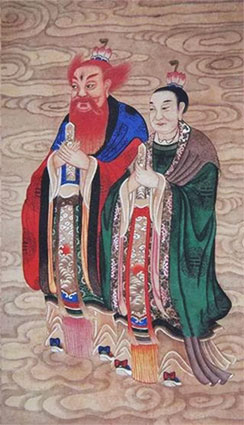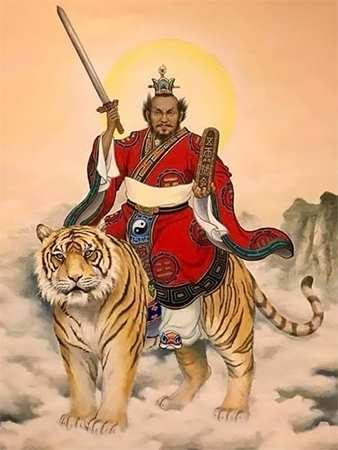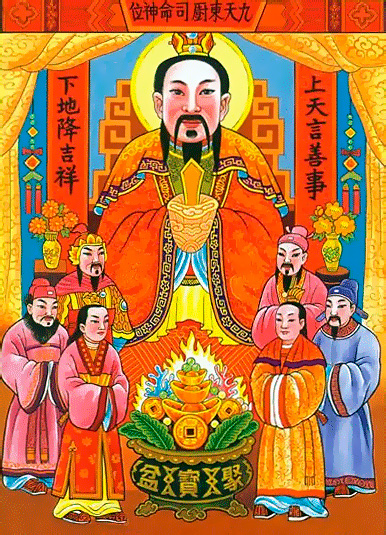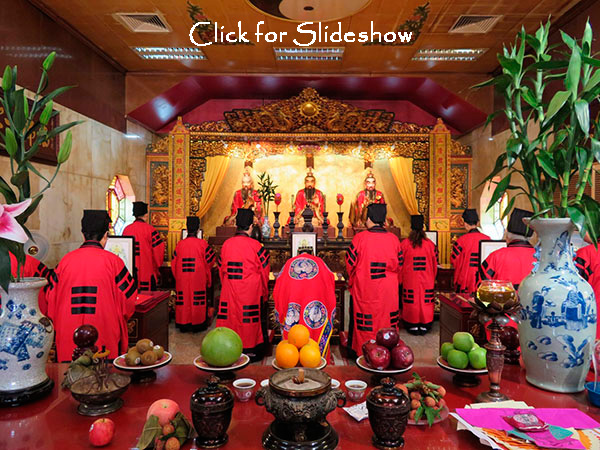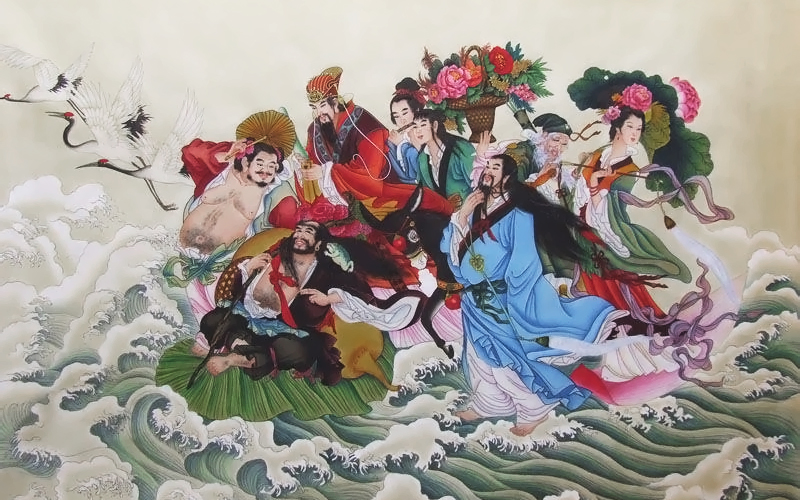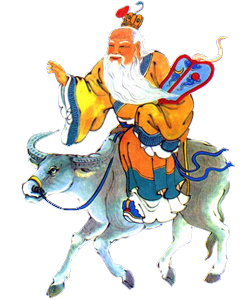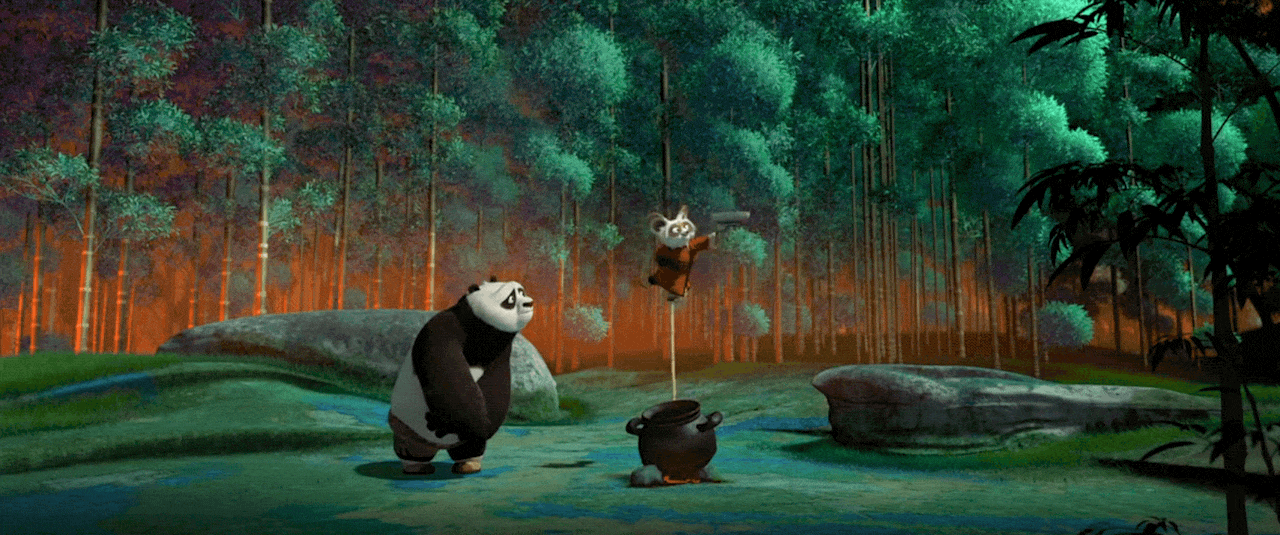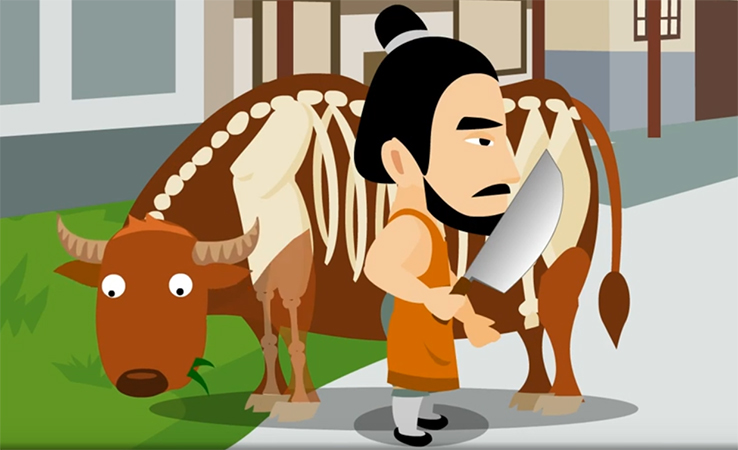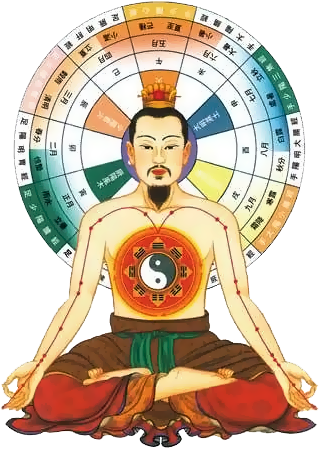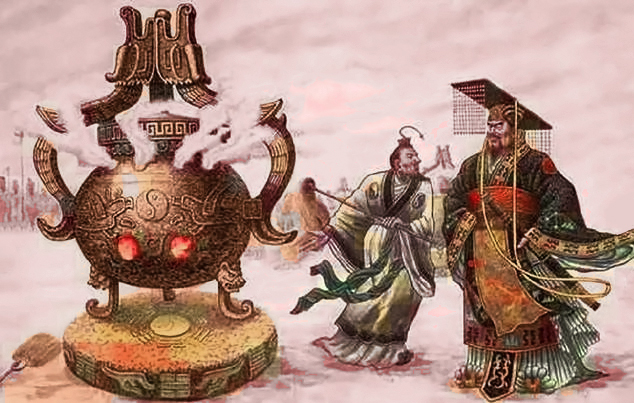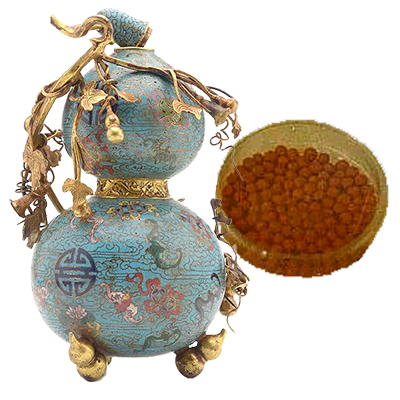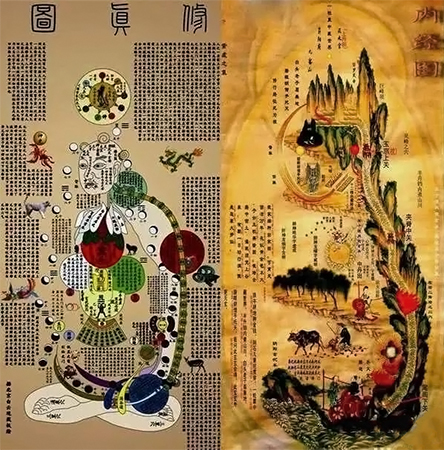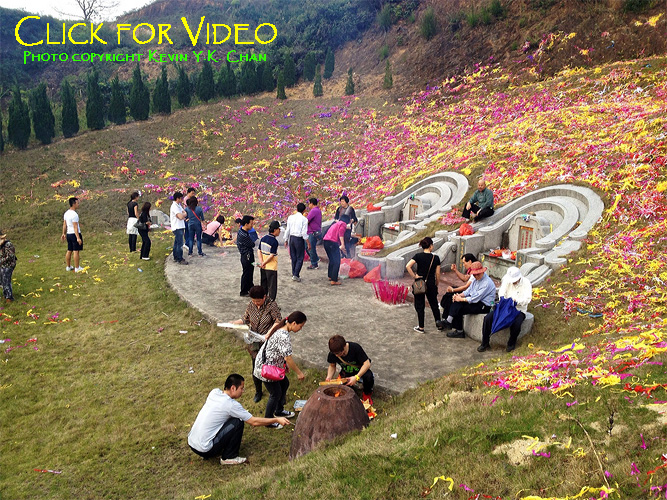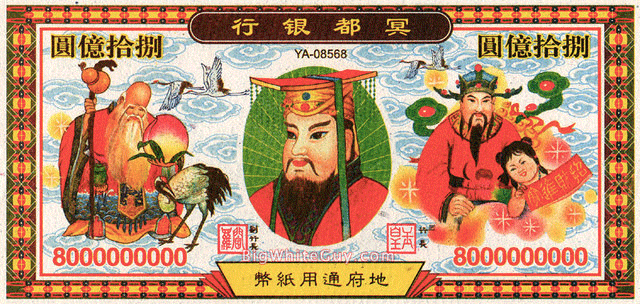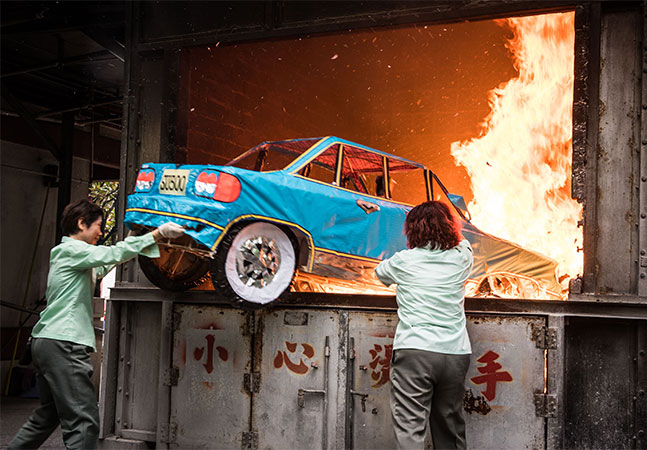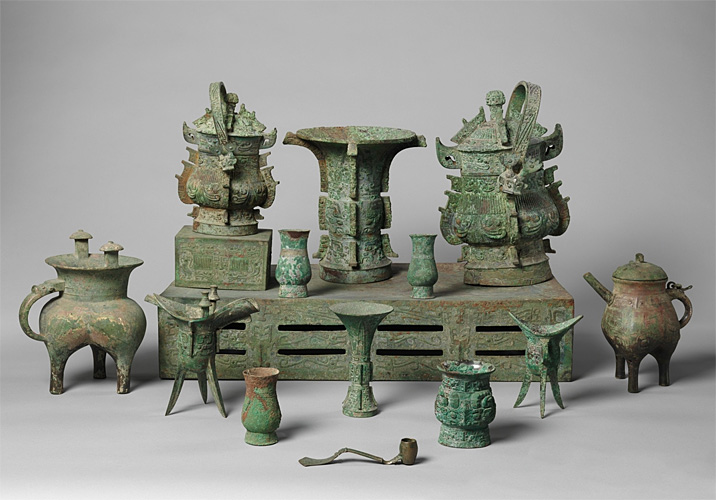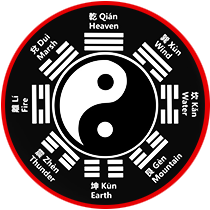

From Lao-Zhuang ...
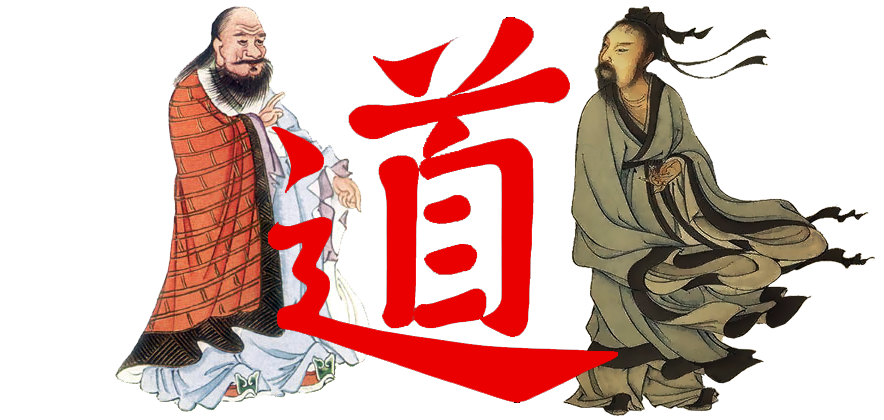

... toHuang-Lao ...
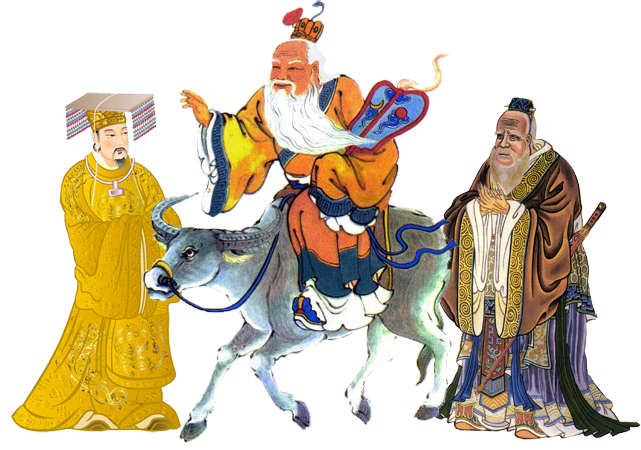
 ... to the Celestial Masters!
... to the Celestial Masters!
Institutionalization
of ... ancient, esoteric, and popular practices into distinctive religious movements,
with revealed texts, detailed rituals, and priests serving as ritual
specialists, developed as the Han dynasty (206 BCE-220 CE) was
declining amidst famine and war. An array of revelations and prophecies
predicted the end of the age and finally led to the rise of
religious/political organizations.
In 184 CE ... Zhang Daoling (Chang Tao-ling) had a vision in which he was appointed representative of the Dao on earth and given the title Celestial Master. He
advocated ... practices of healing by faith and developed a
quasi-military organization of religious officials, attracting numerous
followers. The older Han religion had involved demons
and exorcism, belief in an afterlife, and a god of destinies, who
granted fortune or misfortune based on heavenly records of good and bad
deeds. These roles were now ascribed to a pantheon of celestial
deities, who in turn were controlled by the new Celestial Master
priesthood led by Zhang’s family. This hereditary clergy performed
imperial investitures as well as village festivals, with both men and
women serving as libationers in local dioceses. After the sack of the
northern capitals early in the fourth century, the Celestial Masters
and other aristocrats fled south and established themselves on
Dragon-Tiger Mountain in southeast China. Today the Celestial Masters
tradition is thriving in Taiwan and Hong Kong, and the movement is also
being revived in mainland China. (Living Religions, 200)
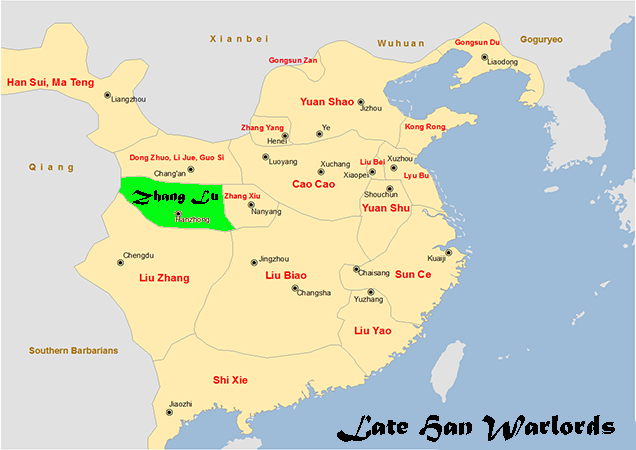
|
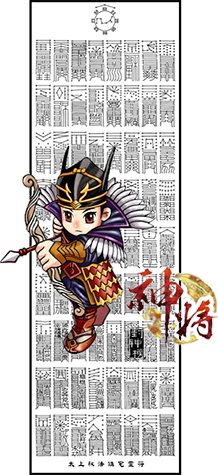 Under [Zhang Daoling’s grandson,
Zhang Lu], the Celestial Masters rose to greater prominence, notably
through merging with another local cult run by Zhang Xiu (not a
relation). This cult utilized a more stringent military-type
organization and practiced a formal ritual of confession and
petition — both characteristics that were to become typical of the
Celestial Masters in general. ... From what information we have it appears that
the followers of the Celestial Masters were hierarchically ranked on
the basis of ritual attainments, with the so-called libationers (jijiu)
at the top. They served as leaders of the twenty-four districts and
reported directly to the Celestial Master himself. Beneath them were
the demon soldiers (guizi),
meritorious leaders of householders who represented smaller units in
the organization. All leadership positions could be filled by either
men or women, Han Chinese or ethnic minorities. At the bottom were the
common followers, again organized and counted according to
households. Each of these had to pay the rice tax or its
equivalent in silk, paper,
brushes, ceramics, or handicrafts. In addition, each member, from
children on up, underwent formal initiations at regular intervals and
was equipped with a list of spirit generals for protection against
demons — 75 for an unmarried person and 150 for a married couple.
The list of spirit generals was called a register (lu) and was carried, together with protective talismans, in a piece of silk around the waist. (Daoism and Chinese Culture, 70-1) Under [Zhang Daoling’s grandson,
Zhang Lu], the Celestial Masters rose to greater prominence, notably
through merging with another local cult run by Zhang Xiu (not a
relation). This cult utilized a more stringent military-type
organization and practiced a formal ritual of confession and
petition — both characteristics that were to become typical of the
Celestial Masters in general. ... From what information we have it appears that
the followers of the Celestial Masters were hierarchically ranked on
the basis of ritual attainments, with the so-called libationers (jijiu)
at the top. They served as leaders of the twenty-four districts and
reported directly to the Celestial Master himself. Beneath them were
the demon soldiers (guizi),
meritorious leaders of householders who represented smaller units in
the organization. All leadership positions could be filled by either
men or women, Han Chinese or ethnic minorities. At the bottom were the
common followers, again organized and counted according to
households. Each of these had to pay the rice tax or its
equivalent in silk, paper,
brushes, ceramics, or handicrafts. In addition, each member, from
children on up, underwent formal initiations at regular intervals and
was equipped with a list of spirit generals for protection against
demons — 75 for an unmarried person and 150 for a married couple.
The list of spirit generals was called a register (lu) and was carried, together with protective talismans, in a piece of silk around the waist. (Daoism and Chinese Culture, 70-1) |

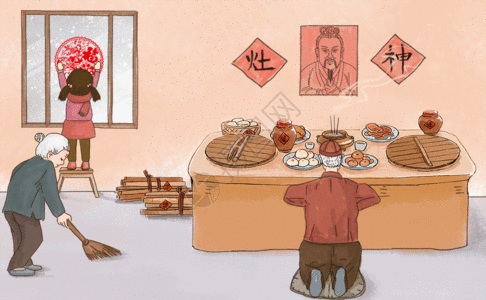
|
The families of the faithful were organized
into twenty-four parishes, led by priest-officials known as
libationers, who performed a combination of civil and religious
functions. An
important part of the libationers’ duties was their mediating between
the parishioners and the various gods and spirits. They also kept household registers
that were supposedly held by the gods of the celestial bureaucracy, who
watched over each individual and recorded his or her misdeeds. ...
Go up to Heaven to report (the family's) good deeds
Come down to earth to bestow good fortune (on us)
[The]
communication and supplication of the various celestial powers was
supposed to go via proper bureaucratic channels, with a priest
submitting a written petition to the appropriate celestial bureaucrat
in the same manner as a government official would present a memorial to
the court. The whole Celestial Masters movement was permeated with a
bureaucratic outlook that extended to the terrestrial and celestial
realms, which became a prominent feature of Daoism and popular
religion. (Introduction to Chinese Religion, 72-4)
|
|
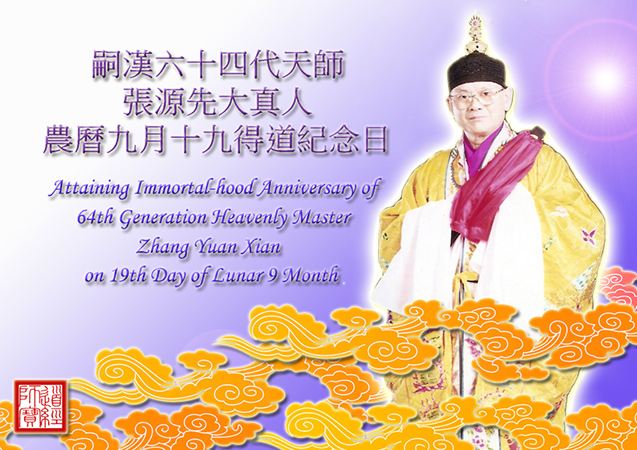 |

Daoism in Contemporary Hong Kong
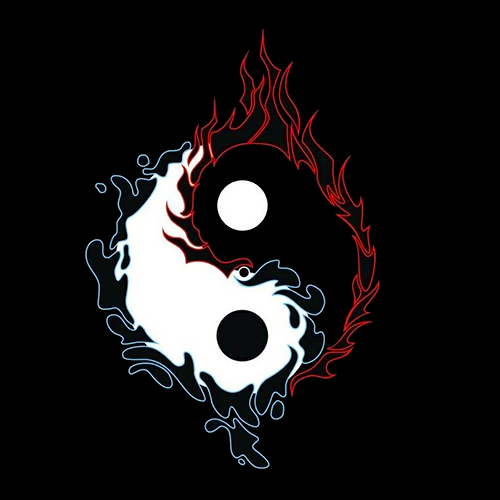 The Secret of Preserving Life
The Secret of Preserving Life
The
aim of the longevity practices is to use the energy available to the
body in order to become strong and healthy, and to intuitively
perceive the order of the universe. Within our body is the spiritual
micro-universe of the “three treasures” necessary for the preservation of life: generative force (jing), vital life force (qi), and spirit (shen).
These three are said to be activated with the help of various methods: breathing
techniques, vocalizations, vegetarian diets, gymnastics, absorption of solar and
lunar energies, sexual techniques, visualizations, and meditations. (Living Religions, 198-9)
I have heard that one who is good at taking
care of his life will not encounter wild bulls or tigers when traveling
by land, and will not [be wounded] by weapons when in the army. [In
this case] wild bulls will find no place in which to thrust their
horns, tigers no place in which to put their claws, and weapons no
place in which to insert their points. And why? Because in him there is
no place (literally, no ground) of death. (Chinese Religion, 81-2; cf. Daodejing 50)
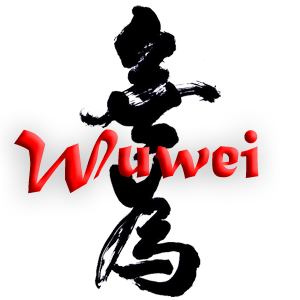
Zhuangzi
Cook DingA good cook changes his knife once a
year — because
he cuts. A mediocre cook changes his knife once a month — because he hacks. I’ve had this knife of mine for
nineteen years and I’ve cut up thousands of oxen with it, and yet the
blade is as good
as though it had just come from the grindstone. There are spaces
between
the joints, and the blade of the knife has really no thickness. If
you insert what has no thickness into such spaces, then there’s plenty
of
room — more than enough for
the
blade to play about in. That’s why after nineteen years the blade
of
my knife is still as good as when it first came from the grindstone. ... “Excellent!”
said Lord
Wen-hui. “I have heard the words of Cook Ting and learned how to care for life!” (The Complete Works of Chuang Tzu, 50-51; cf. Zhuangzi, Chapter 3)

|
The
search for the elixir of immortality, closely related to, or identical
with “the philosopher’s stone,” apparently began in China and
eventually spread to the West. The alchemical elixir, when ingested,
would prolong life indefinitely; the alchemical philosopher’s stone
would be able to transmute base metals into gold. Gold was the common
denominator. In the case of the elixir, the symbolism of gold was that
of indestructible, incorruptible life. The hope of making cheaper
ingredients into the most valuable needs no symbolism. (Chinese Religion, 83)
The process of “inner alchemy” involves circulating and transmuting jing energy from the lower body into qi energy and then to shen energy to form what is called the Immortal Fetus, which an adept can reportedly raise
through the Heavenly Gate at the top of the head and thus leave their
physical body for various purposes, including preparation for life
after death. In addition, the adept learns to draw the qi of heaven and earth into the micro-universe of
the body, unifying and harmonizing inner and outer. (Living Religions, 199)
|
First take the power of heaven and earth and make
them into your crucible; Then isolate the essences of the sun and the moon: Urge the two things
to
return to the Tao of the center: Then work hard to attain the golden elixir — how
would it not
come forth? Secure your furnace, set up your crucible; always
follow
the power of heaven and earth. Forge their essence and refine their
innermost
power, always keeping well in control of your yin and yang souls.
Congealing
and dissolving, the incubating temperature produces transmutation. Never
discuss its mystery and wonder in idle conversation! ... Swallowing saliva and breathing exercises are
what
many
people do. Yet only with the method of this medicine can you truly
transform
life. If there is no true seed in the crucible, It is like taking water
and
fire and boiling an empty pot. ... “Empty the mind and fill the belly” — such
profundity of meaning! Just to empty your mind, you must know it first. Similarly,
to refine your lead, you must first fill the belly: Understand this to
protect
the mass of gold that fills your halls
within. (Anthology of Living Religions, 175-6)
|

The Disintegration of the Yin & Yang Souls
Beliefs
about the existence of supernatural or mysterious beings are based on
the notion that, at some level, the soul or spirit of a person can
survive the moment of physical death. Such conception of the soul and
the afterlife is grounded in ancient cosmological schemes central to
Chinese thought, which postulate fundamental order and unity in the
universe. Customarily, Chinese believe in the existence of two kinds of soul: earthly soul (po), linked with the yin element, and heavenly soul (hun), linked with the yang
element. Upon death the earthly soul — associated with darkness,
sensuality, and corporality — moves downward towards the earth and can
be transformed into a ghost. On the other hand, the heavenly
soul — associated with brightness, intelligence, and
spirituality — travels upwards and can be reborn as a god or an
ancestor. Despite their apparent differences, there are therefore
striking similarities between the ancestors and the gods, even though
the gods are believed to be in possession of greater numinous power,
and their influence purportedly extends beyond the confines of
individual families. It is also possible for an ancestor to transform
himself or herself into a god (but also into a demon). Accordingly, the
two classes of supernatural beings, gods and ancestors, are usually
worshiped in a similar manner. (Introducing Chinese Religions, 170)
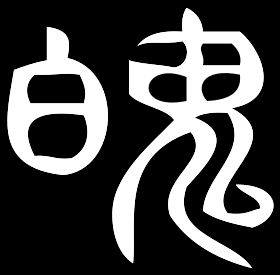
Rituals for the Po (Yin) Soul
 Rituals for the Hun (Yang) Soul
Rituals for the Hun (Yang) Soul
The
spirits of the ancestors are traditionally symbolized and commemorated
by means of ancestral tablets, on which their names are inscribed.
Within individual homes the ancestral tablets are placed at special
altars or shrines. In cases of wealthier households, there might be
separate ancestral halls, or even whole ancestral temples. Often
ancestral tablets are also placed at a local temple, which might be a
Buddhist or a Daoist establishment. Within the altar area the tablets
are frequently accompanied with statues or paintings of popular deities
such as Guandi, Mazu, or Guanyin. Offering incense and paying respects
at the ancestral shrine are integral parts of the domestic routine of
many Chinese households. On special occasions there are more elaborate
rites and sacrifices, which usually involve the offerings of food and
incense. (Introducing Chinese Religions, 170-1)
  Spirit Tablets
 Contemporary Family Altar
Contemporary Family Altar
|









